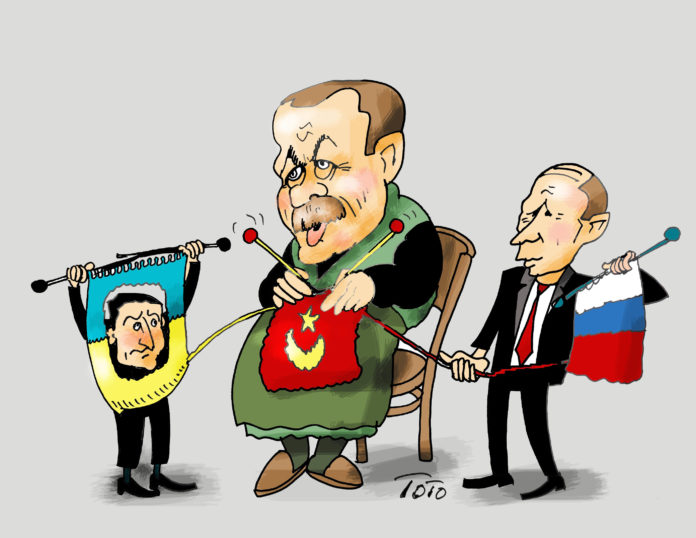The Chinese adage that crisis creates opportunity has given a new lease on life to Turkish President Recep Tayyip Erdogan’s policies and Turkey itself.
The dramatic decline of the Turkish economy and dimming of hopes for Erdogan’s reelection in 2023 had startled Turkey’s ruling AK Party into looking for a realignment of its foreign policy to avoid an impending catastrophe down the road.
Turkey’s expansionist policies had antagonized countries near and far; it led to tensions with Greece over the Aegean, Cyprus over explorations of the island’s offshore gas reserves, Israel over support for Hamas and the Palestinian cause, Saudi Arabia over the murder of Washington Post journalist Jamal Khashoggi in the Saudi consulate in Istanbul, the United Arab Emirates over the Abraham Accords recognizing Israel, Egypt over its support for the Muslim Brotherhood, China for stoking violence in the Turkic Xinjiang Province, Armenia over the Karabakh War and the US and NATO countries for purchasing S-400 military planes from Russia.
All these missteps had led the country to isolation and economic crisis.
While Turkey was looking for opportunities to mend fences with neighbors and allies, that opportunity arrived with the eruption of war in Ukraine. The trips by French President Emmanuel Macron and German Chancellor Olaf Scholz could not dissuade President Vladimir Putin from pulling the trigger. And after the beginning of the war, the visit of Israel’s Prime Minister Naftali Bennett or calls from President Macron were to no avail. Even after his call, Macron warned the media “to expect the worst.”
War is brutal and the media is powerful, therefore it was easy for the West to orchestrate a worldwide protest against Russian aggression in Ukraine, especially in light of seeing the toll of war in real time. But, after all, it was not a bad deal for the West to weaken Russia through economic hemorrhage at Ukraine’s expense, although sanctions against Russia will have a ricochet effect worldwide; oil and metal prices are at record highs already. Five thousand sanctions have been instituted by Western countries. Bloomberg has labeled these measures as the “nuclear level of sanctions.”








